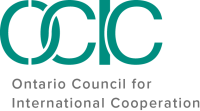The Inter-Council Network of the Provincial and Regional Councils for International Cooperation,
in partnership with
CISO (Centre international de solidarité ouvrière) and the CQFD (Comité québécois femmes et développement)
invite you to the webinar:
–
DOMESTIC WORKERS HAVE RIGHTS!
–
Since the 1950s, domestic workers in Canada – the majority of whom are racialized women and immigrants – have made significant contributions to the development and growth of the Canadian economy. Yet, their contributions remain unrecognized, their labour is invisible and continues to be undervalued in Canadian society. Federal and provincial policies on domestic workers have consistently focused on exploiting the value of their work instead of protecting their human rights. Today there are approximately 150, 000 domestic workers in Canada. These women are exposed to exploitation, racial discrimination, sexual and psychological harassment, violence and rape.
–
Worldwide the ILO estimates that there are between 67 and 100 million domestic workers. Out of that total 15.5 million are children, and the majority are girls and women. These workers face racism, discrimination, caste systems, slavery, physical and sexual violence, and egregious limitations on their mobility rights.
–
This webinar is an opportunity to learn more about the violations of domestic workers’ rights and the campaign to ratify International Labour Organization (ILO) Convention 189 concerning decent work for domestic workers. The Centre international de solidarité ouvrière (CISO : International Workers Solidarity Center), the Comité québécois femmes et développement de l’AQOCI (CQFD : Quebec Women and Development Committee) and their partners from the labour movement, international solidarity groups and social movements, invite you to support the campaign to:
- Demand that the Canadian Government finally ratify Convention No. 189 on decent work for domestic workers.
- Invite provincial and territorial governments to harmonize their local legislation to reflect ILO Recommendation No. 201, which accompanies Convention No. 189.
Facilitator:
–
Nancy Burrows, responsible for Global Citizenship Education at AQOCI (Association Québécoise des organismes de cooperation international)
Panelist:
–
Adelle Blackett, is Professor of Law and Canada Research Chair in Transnational Labour Law and Development at the Faculty of Law, McGill University. A former official of the International Labour Office (ILO) in Geneva, she has since been an ILO expert and in a labour law reform process in Haiti (2011-2014). She also was, in 2008-2011, expert for the ILO on international standard setting on decent work for domestic workers, leading to the adoption of ILO Convention No. 189 and Recommendation No. 201.
–
A representative from PINAY, founded in 1991, PINAY is a Filipino Women’s Organization that works to empower and organize Filipino women in Quebec, particularly Filipino domestic workers. Most of its members are migrant workers under the Live-In Caregiver Program (LCP). For two decades Pinay has brought together domestic workers and their supporters together in the struggle for basic rights and welfare.
–
The webinar will provide participants with an opportunity to:
- Learn more about the reality of domestic workers in Canada
- Learn more about the campaign to support domestic workers’ rights and see how their organizations can participate in the campaign.
Optional preparatory Reading (available in French only):
–
Information Sheet on the ILO Convention no. 189 on domestic workers’ rights
Information Sheet on domestic workers in Mexico
Information Sheet on domestic workers in the Middle East
–
When: Tuesday, June 12, 2018 12:00 am to 1:00 pm EST /9:00 am to 10:00 am PDT
Where: Online Webinar
–
[button title=”Register” url=”https://www.eventbrite.ca/e/icn-bilingual-webinar-june-12th-domestic-workers-have-rights-webinaire-bilingue-du-rcc-le-12-juin-registration-44456829574?mc_cid=24f0f03779&mc_eid=%5bUNIQID%5d” style=”big filled”]
–
Language:
This webinar will be run in English and French with simultaneous interpretation.
Any visual support will be bilingual and the facilitator will be happy to answer questions asked in both languages.
–
Login information:
Registrants will be provided with login details.
–
Join the conversation at #ICNengage.






